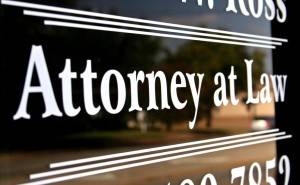Accused of a Felony
The following details the unique rights and procedures for those accused of a felony.
What is a Felony?
A felony is defined as any crime that carries a maximum sentence exceeding one year in jail. Some common examples of felonies include: cocaine possession, heroin possession, grand theft, armed robbery, and murder. The most serious of all charges, felonies carry significant and potentially devastating consequences including, without limitation, incarceration, probation and parole, substantial fines, loss of constitutional rights (right to possess weapons, right to vote) and restrictions on employment. Consulting with a California Criminal Defense Lawyer at Wallin & Klarich in the early stages of investigation or upon arrest can help the accused to avoid these potentially severe punishments.
Unlike misdemeanor charges, felony charges require the defendant’s appearance at all court hearings. If the defendant fails to appear, the court will issue a warrant for his/her arrest. In addition, the defendant will forfeit any bond that he/she posted.
Arraignment
A felony charge may require two arraignments: the initial arraignment in the inferior court and, if the defendant is bound over following a preliminary hearing, a subsequent arraignment in superior court.
Bail
If the defendant is in custody, he/she will have access to bail, which is set forth in the county bail schedule. The bail for felony charges is generally greater than that for misdemeanor charges. See Bail for more information.
Pretrial Conference

The pretrial conference occurs after the arraignment and provides the defense attorney an opportunity to negotiate a plea offer or convince the prosecutor to drop the charges completely. For felony charges, the pretrial conference carries many titles: Felony Settlement Conference (FSC), Disposition and Resetting Hearing (D & R), or Trial Readiness Conference (TRC). During the pretrial conference, the defense lawyer may discuss the weaknesses and flaws in the prosecution’s case in the hope that doing so will prompt the prosecutor to drop the case entirely. In addition, an experienced California Criminal Defense Attorney at Wallin & Klarich will introduce mitigating factors in the hope that doing so will prompt the prosecutor to make a more lenient offer. Mitigating factors may include the defendant’s providing restitution to the victim, attending counseling sessions, and/or obtaining awards or accolades for his/her work.
Speedy Trial Rights
The defendant has a right to trial within sixty days of the arraignment in superior court. Consulting with an California Criminal Defense Lawyer at Wallin & Klarich is the most effective way a defendant can ensure that his/her right to a speedy trial is honored.
Preliminary Hearing and Grand Jury Proceeding
California law permits two avenues for felony prosecutions:
- An arraignment in the inferior court, granting the defendant the right to a preliminary hearing prior to trial. At the arraignment, the prosecutor serves the criminal complaint, which outlines the charges, lists the nature of the crimes and identifies the approximate dates of the offense(s); or
- A grand jury indictment. If the defendant is indicted by a grant jury, he/she is not granted a preliminary hearing in the inferior court, rather only receives a hearing in the superior court. Grand jury indictments are extremely rare in the California state court system.
Preliminary Hearing

Under California law, the defendant must undergo a probable cause hearing before he/she can stand trial on felony charges. During this preliminary hearing, the prosecutor will subpoena witnesses to testify about the incident. The prosecutor must establish reasonable cause to believe the crime was in fact committed and the defendant committed the crime. The prosecutor must meet this evidentiary burden to further the case to trial.
If the court determines that the prosecutor failed to meet his/her burden, the court can dismiss the case and discharge the defendant. If the court does not dismiss the case completely, it can reduce the charge, for example from a felony to a misdemeanor. In addition, the court has the power to raise or lower the defendant’s bail. Preliminary hearings can have significant impacts on the future direction of the case, thus consulting with a California Criminal Defense Attorney at Wallin & Klarich is critical to an effective defense in the preliminary hearing stage.
Grand Jury
If the defendant is indicted by a grand jury, he/she does not have a right to a preliminary hearing. Rather, the case will go to a grand jury, comprised of nineteen citizens. In the grand jury proceedings, the prosecutor presents his/her case with witness testimony and other evidence. The prosecutor is not permitted to utilize any evidence that would be inadmissible over objection at trial. However, if evidence is presented that would be inadmissible over objection at trial, the grand jury verdict is still valid as long as there is sufficient, competent evidence to support the indictment.
After all the evidence is presented, the jury engages in a secret deliberation. If twelve or more jurors conclude that sufficient evidence exists to establish probable cause that the accused committed the offense, the jury will indict. Probable cause is established if the evidence would lead a person of ordinary caution or prudence to believe and conscientiously entertain a strong suspicion of the guilt of the accused.
The grand jury proceedings are unique in that the defendant is not granted the opportunity to testify. In addition, the defendant’s attorney is not permitted to attend, however he/she is provided access to a transcript of the grand jury proceedings. A grand jury can convene even if the accused is not yet arrested. In such a situation, if an indictment is handed down, the court will issue a warrant for the defendant’s arrest.
Call Wallin & Klarich Today

Our aggressive California Criminal Defense Attorneys at Wallin & Klarich have over 40 years of experience handling criminal felony cases. Our skilled, professional litigators can help you through every stage of the criminal process, particularly the minute details associated with felony charges. Please call our offices at (877) 4-NO-JAIL or (877) 466-5245 or submit the form at the top of this page for more information.

